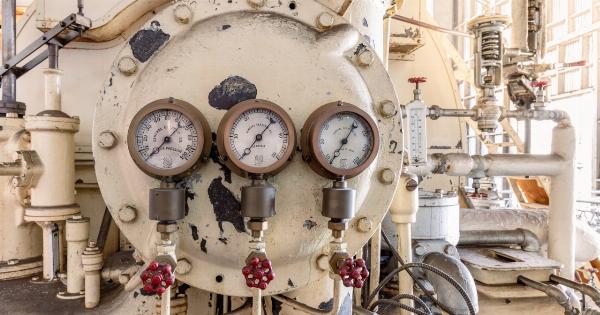Recent studies have shown a 20% upward trend in the prevalence of infarction as a mental disorder.
Previously believed to only be a physical ailment, doctors and researchers are now acknowledging the psychological effects of infarction on the brain and mental health.
What is Infarction?
Infarction is a medical condition caused by the interruption of blood flow to a specific area of the body, resulting in tissue damage or death.
It commonly occurs in the heart, lungs, and brain, leading to conditions such as heart attacks, strokes, and pulmonary embolisms. However, recent studies have shown that infarction can also impact a person’s mental health.
Infarction and Mental Health
When infarction occurs in the brain, it can have lasting effects on a person’s mental health.
The interruption of blood flow to specific parts of the brain can lead to cognitive impairment, such as memory loss, trouble with language and communication, and difficulty with problem-solving. It can also cause mood changes, such as depression and anxiety.
While the physical effects of infarction have been well-documented, its impact on mental health is a relatively new area of study.
In the past, doctors and researchers have focused primarily on the physical effects of the condition, and mental health was often overlooked. However, recent studies have shown that infarction can have long-term psychological effects, which has led to a growing awareness of the need to address mental health as part of the treatment of infarction.
The Link Between Infarction and Depression
Depression is one of the most common mental health conditions linked with infarction. In fact, research has found that people who have suffered a stroke are at a higher risk of developing depression than those who have not.
Studies have also found that depression is more common in people who have experienced other forms of infarction, such as heart attacks and pulmonary embolisms.
The reasons for the link between infarction and depression are not yet fully understood. However, it is believed that the physical and emotional trauma of infarction can contribute to the development of depression.
Additionally, the cognitive and memory impairments caused by infarction can lead to a loss of independence and a sense of helplessness, which can contribute to depression and other mood disorders.
The Importance of Mental Health Treatment for Infarction Patients
Given the growing evidence of the link between infarction and mental health conditions such as depression, it is becoming increasingly important to address mental health as part of the treatment plan for patients with infarction.
This includes not only providing treatment for depression and anxiety, but also addressing cognitive and memory impairments to help patients maintain their independence and quality of life.
The most effective treatment for infarction and its effects on mental health will depend on the individual patient and their specific symptoms.
However, common treatments for depression and anxiety can include medication, therapy, and lifestyle changes, such as exercise and a healthy diet. In some cases, cognitive rehabilitation therapy may also be recommended to help patients improve their cognitive function and memory.
Conclusion
Overall, the upward trend of infarction as a mental disorder highlights the need for doctors and researchers to address the psychological effects of the condition.
While the physical effects of infarction have been well-documented, the link between infarction and mental health is a relatively new area of study that requires further research and attention. By addressing both the physical and mental aspects of the condition, patients can receive the best possible treatment and improve their overall health and well-being.






























